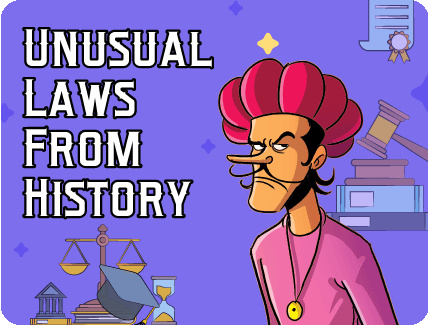Unusual Laws From History
Writer: Aparna Sundaresan
Illustrator: Shivani Pednekar










There have been some truly baffling laws in history that even Tantri will not be implementing when he becomes king of Hujli. Take a look at these ridiculous laws.